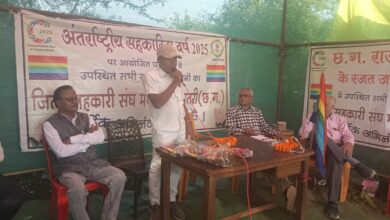Britain’s loneliness epidemic | the elderly |
I
t was only when Gay Ellis fell sick with ME four in years past that she realized how fortunate she was actually. The 67-year-old had moved into a little cottage in a fairly cluster of buildings in Dorset, in which half the residential properties had been privately owned, and half personal property. It wasn’t just a fresh home she obtained, but a “second family members”.
“One neighbour came in each and every day and gave me news on the outdoors globe,” she says. “there’s something vital about understanding I can go out and knock-on any doorway right here.'”
Ellis lives in a converted trip residence, with tosses over couches and rugs from the stone flooring. The lounge has a round, wooden dining table â just big enough for a few. Beyond this can be a snug home hidden according to the stairs. The other domiciles are normally taken for one-bedroom devices to three-bedroom homes, lots of round the central green, still cheery in winter months with containers of trailing flowers. Ellis scoops up a neighbour’s pet even as we head inside stone farmhouse in which residents meet for group tasks. In one of the large, dark kitchen areas several buddies are experiencing lunch and call-out greetings. From inside the big kitchen, where neighbours have a joint twice-weekly dinner, the hearth is actually strung with a chain of smiling photographs of all the inhabitants. The set up is known as
co-housing
.
High and stylish, together lengthy, grey hair, swept back from the woman face, Ellis outlines, over a full bowl of home made veggie soup, some great benefits of her new way life: “this might be an intentional community, so that you you should not feel responsible about imposing on others. I could call on any individual and people will always popping in.”
She informs the storyline of her 75-year-old neighbour, Caroline, whom died a year ago. Whenever Caroline was at a hospice, a number of residents agreed to maintain the lady. “Before she came right here,” states Ellis, having an image of her friend on her behalf bookshelf and another inside the meditation space, “she nursed the woman 90-year-old mum for three years. She usually said she never wanted that for her youngsters. Perhaps she thought if she was in a residential district the duty wouldn’t normally totally rest to them â and that’s how it worked.”
Although
The Threshold Center
, while the community is named, is prepared for all age groups (the youngest citizen they will have had, was actually two) and most residents such as the green and religious aspect of the center, co-housing is being recognized as an antidote on the chronic loneliness people face in advancing years. Groups have sprung up nationally: 12 are developed, and another 32 can be found in development, three which hope to generate homes just for the elderly.
Co-housing, states Professor William Lauder on University of Stirling
, that analyzed the results of loneliness, is actually an “absolutely best” cure for just what has grown to become “one of the biggest and least-addressed general public medical issues”.
A lot of specialists today believe we’re able to be experiencing a loneliness epidemic. The figures are surprising. Laura Ferguson through the
Campaign to finish Loneliness
says the number of those who describe on their own as occasionally lonely features raised by 20per cent, while “10percent of everyone over 65 is chronically depressed”.
Gay Ellis lives at the Threshold center in Dorset: ‘There is something essential about understanding I’m able to just go and knock on any home here.’ Picture: SWNS.com
According to the division of Health, five million seniors state their unique primary friend could be the TV set, and
nearly one in five older people can be found in connection with family buddies
and neighbours significantly less than once per week. Responding, the federal government has
revealed plans to “map” loneliness
in elderly people by asking local authorities to spot wherein locations men and women are putting up with many acutely.
Psychologist
John Cacioppo, within University of Chicago
, is actually a leading researcher into loneliness. He defines it a “debilitating mental situation characterised by a-deep sense of emptiness, worthlessness, shortage of control and private risk”. He believes loneliness is partially genetic â and an essential evolutionary tool. “This discomfort offered to remind you to renew the associations we need to guarantee survival and advertise social trust, cohesiveness, and collective motion,” he says. In reality, Cacioppo believes, loneliness is actually indicative of our own society’s wellness, allowing us determine how well we are incorporated. If this is the situation, you should be really concerned.
A flurry of studies have demonstrated that lonely folks face severe health risks. Some research have even recommended that becoming lonely is
much like smoking 15 smokes per day
; other individuals it can easily raise the
threat of alzhiemer’s disease
. Lauder believes: “My personal studies show that those who’re lonely are more likely to smoke and stay obese,” according to him. “US scientists demonstrated that those who’re alone are less likely to get regular exercise. If you are lonely you might be more prone to have a heart attack, just in case you have a heart assault while you are lonely, you are less likely to want to survive it. You may be two fold or triple as more likely to perish. But however, there is far more research, it’sn’t translated into plan.”
One basis for this may be because loneliness is such an intricate concern. In the first place, it is subjective, and not fundamentally linked to bodily isolation: “you have 10 family members who live in your area,” claims Lauder, “but you could still be lonely.”
To simply help effortlessly, charities must differentiate between mental loneliness â once you neglect one individual, somebody or buddy after a bereavement, by way of example â and social loneliness, when you not feel part of the party, claims Ferguson. Cacioppo can make more sections into situational loneliness â when situations instance family or health issues end you experiencing attached to other people â and persistent loneliness, whenever emotions of loneliness “become uncoupled from the scenarios that aroused all of them”.
For David Etherington, 90, it was losing freedom and autonomy that struck him hardest; resting inside cramped, silent lounge of his sheltered holiday accommodation in Weybridge, brightened just with photos of their partner, daughter and granddaughter, together with postcards of kitties and kittens pinned to your wall space, he states the loneliness arrived as a shock.
A soldier for the parachute routine throughout combat, Etherington worked all their existence, from 1st job as a lorry driver to collecting glasses in an area pub as he ended up being virtually 80. He cherished operating and after the guy offered it was still effective and delighted, visiting the pub and baseball suits with friends.
It had been a stroke, three years in the past, that remaining him unable to go without a framework â and practically overnight produced isolation. After he had been released from medical facility the guy found himself trapped inside the little, institutional flat, at the end of a lengthy bleak passageway of comparable homes. All their normal pursuits â from sipping inside the club to watching basketball suits â became impossible to navigate when he couldn’t walk on his own, and by then their buddies during the protected holiday accommodation had passed away. “All my personal outdated friends have gradually died,” the guy informs me, his sound breaking.
The worst hit was actually as he ended up being informed the guy cannot also move inside communal yard, if perhaps the guy fell over â and all of the casual, private relationships that comprise our very own days, disappeared. “Before the stroke I would personally walk down with the stores, but after ward we never ever moved anywhere,” according to him unfortunately.
His child visits every Saturday and phones him every night but their days nonetheless appear limitless, he says. “It develops on you and also in the conclusion you don’t have to do any such thing. I’d walk-down the corridor, however, if I didn’t see any person it actually was a waste of time. I-go to bed whenever it’s dark â even in the wintertime. You just hope for rest to come.”
Etherington, whose partner died forty years before, is currently helped by the charity
Pals for the Elderly
, whoever
befriending service
set him up with a regular customer and a weekly stop by at a nearby time centre. Having a glass of beverage with some one and getting regarding the house provides assisted extremely, he states. Nevertheless tears are not far from the surface plus this respite cannot prevent Etherington from feeling that he’s disregarded, no much longer area of the globe.
Disability and ill-health have traditionally been recognised as causes for loneliness although fragmentation of culture â the decrease associated with the atomic household, the way we move for work, the fact less individuals accept older family relations, and undoubtedly, the growing
quantities of men and women residing by yourself
â demonstrably adds to the issue.
Iris Nichol, as an example, moved from her home in Newcastle to call home next-door to the woman child in a community in Northumberland ten years before. She actually is 80 and views the woman child, a headmistress, every day possesses close interactions with her various other young ones, she additionally visits a day center operated because of the get older positive charity, WRVS. But because her girl works long drawn out hours, it could be a solitary life, as she often cannot see anybody else. “individuals are various these days,” she states. “They hold themselves to on their own. Should you decide ask them to help, they’ve been usually ready, but i have already been pretty much disabled going back few years and not you have asked me personally if I am all right.
Jane Stott additionally resides within Threshold Centre in Dorset. Picture: SWNS.com
“we spent my youth in only a little mining community in County Durham. We lived in an enclave of people that worked for similar supervisor, but these days it can be retired people right here. We sit where I can see out of the screen on center of attention for the community, and the majority of days I see no body anyway. There’s no movement, besides a cat.”
Iris claims it had been the local shuttle service getting cut that compounded her sense of separation, because she could no further circumvent on the very own to go to the shops or head to a cafe. She tells me that the day before we talk she did not see any person until her child arrived house at 9pm, subsequently poignantly corrects herself: “The postman usually provides me personally a wave.”
David McCullough, chief executive of
WRVS
claims its difficulty he has got heard often times. The foundation started initially to investigate loneliness following the folks it aids mentioned it had been the thing that made the absolute most difference between their unique schedules, over financial if not health fears.
Despite the scale from the problem, not everyone are willing to confess to experiencing lonely â Nichol, including, don’t utilize the word-of herself but states her problem is “more insufficient company”. Loneliness remains stigmatised, states Cacioppo and “those people who are afflicted with it commonly reject it, ignore it, or tough it out”. Whenever
Esther Rantzen
smashed the taboo and
typed about her own feelings of loneliness
, she said she had been surprised the avalanche of characters from people in similar conditions, by those, she states, whom shared with her just how courageous she were to be truthful about it.
In reaction
she made a decision to establish a 24/7 helpline and telephone befriending solution
. A pilot program, dubbed
The Silverline
, started in November, having telephone calls over Christmas through the north-west. “some individuals hadn’t talked to anybody else on Christmas time Day or boxing-day, but regardless of this they mentioned there had been others even worse down than all of them,” mentioned Rantzen. “there is certainly this daunting feeling among seniors that they should not be a burden.”
Sophie Andrews, exactly who helps you to manage the helpline, says the skilled volunteers took 300 contacts the first few weeks and 50 % of the callers had asked to become listed on the befriending service. “we talked to a girl with terminal cancer who was simply really isolated,” she claims. “the woman cellphone had been take off to outgoing calls, so our regular inbound telephone call had been the only person she was going to get. She had come across financial dilemmas along with her warming was basically take off. Together permission we managed to entail social solutions to get crisis energy payment through.”
David Etherington: ‘All my old friends have gradually died.’ photo: Graham Turner for your Guardian
Another person shown the most popular ailment to be hitched and in the middle of household, but nonetheless feeling by yourself. “the woman lover had alzhiemer’s disease and she didn’t desire to be a burden regarding the family members, so she merely thought caught. That is anything many have explained. People are happy life by yourself, but just as you may be in a house chock-full of people and become lonely.”
Other people have labeled as after dropping their associates. “Many of the men we consult with who’re for any widow forfeit that social connection because each of their social networks had been managed by their unique wives, so they really believe they’ve lost connection with the outside world.”
A comparable task in Ireland,
Senior Helpline
, has been working for longer than ten years and was given significantly more than 15,000 telephone calls this past year. “Underpinning a lot of our telephone calls are the ones who are staying in mental loneliness, or geographical isolation, or both,” states Anne Dempsey through the charity. “some individuals give us a call each day and understand our volunteers on a first-name basis. We realize about their life. For a number of the problem don’t change â but we keep them organization. Older people you live longer â there is included decades to the everyday lives, today the process is always to add life on many years.”
Experts warn that loneliness is far from each person’s issue â the ill health it causes could be high priced for all the NHS, not to mention the connected mental health dilemmas, such as for instance depression. Loneliness can be getting, too: as one depressed individual will get caught in a cycle of negative thoughts, they can force out people they know and household, leading them to, in change, feel lonelier.
Maria Brenton, through the
Senior Ladies Co-Housing circle
, believes that just what seniors require is to not end up being pitied, but an opportunity to avoid themselves being caught such situations. This lady has been trying to set up a housing work for women aged 50-plus in tall Barnet, north London, such as the Threshold Centre in Dorset. “My generation appears with scary at sheltered casing and treatment houses; You will find operate my life when I wish to for 67 many years, and I also never understand why we should prevent.”
Receive involved in volunteering or even to to track down causes and organizations which will help you decide to try:
Get in touch with older people 0800 716 543 or visit
www.contact-the-elderly.org.uk
, Era UK
ageuk.org.uk
(0800 169 6565), WRVS
wrvs.org.uk
(0845 600 5885), Friends in the Elderly
fote.org.uk
(020 7730 8263) and
thesilverline.org.uk
(north-west just) (0800 328 8888)







 Touch Me
Touch Me